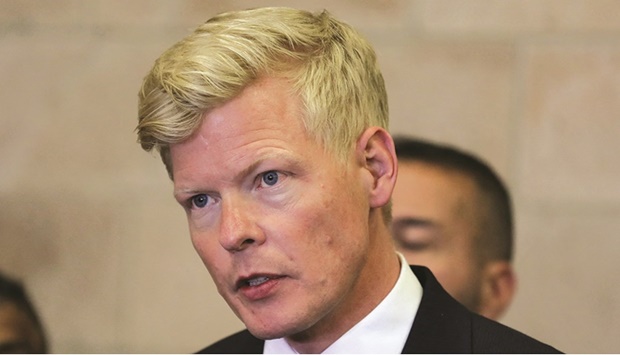The United Nations is pushing Yemen’s warring parties to agree a six-month truce extension, two sources familiar with the talks said, which would be the longest in the seven-year-old conflict as international pressure grows on both sides to end the war.
Peace efforts gained a boost after US President Joe Biden visited Saudi Arabia last week, where he announced agreement with the Saudi leadership to “deepen and extend” the ceasefire expiring on August 2.
The war has pitted a coalition led by Riyadh against Yemen’s Houthis since 2015.
However UN Special Envoy for Yemen Hans Grundberg has to address strong grievances from both sides before they accept a further renewal of the existing two-month truce deal that first took hold in April, the sources said.
If agreed, the six-month extension would be the biggest step so far in the UN process towards resolving a conflict that has killed tens of thousands of people and left millions facing famine in a severe humanitarian crisis. “The proposal (for a six-month extension) has been with the parties for some time now,” one of the sources said.
Grundberg will in coming days travel to Oman, where the Houthis’ chief negotiator is based, and to Yemen’s southern port city of Aden, where the Saudi-backed government is headquartered, for discussions, the source added.
Ismini Palla, spokesperson of Grundberg’s office, said the UN envoy has been discussing with the parties the renewal of the current truce, including the possibility of extending it for a longer period but “cannot discuss details at this time”.
“Mr Grundberg will continue his extensive engagements with the parties in the coming days,” Palla told Reuters by e-mail.
“We hope that the parties will engage with his efforts constructively...that they do not miss this opportunity to reach a just and sustainable end to the conflict in Yemen.”
Both sides have been frustrated about implementation of the full terms of the deal which included allowing fuel ships to dock into
Houthi-held Hodeidah port, some commercial flights from the capital Sanaa, which is also under the group’s control, and talks to reopen roads in disputed Taiz region.
The sources said that the Saudi-backed authorities blame the Houthis for not reopening main roads in Taiz and accuse them of not sharing tax revenues from Hodeidah port, while the movement accuses the coalition of reducing the number of fuel ships arriving at Hodeidah over recent weeks, and says Egypt has not allowed more than one flight from Sanaa to Cairo.
Sources at Cairo airport said Egypt needed more security checks for Sanaa flights over concerns about militant activity in north Yemen.
The flights will be allowed if requirements are met but any movement on the issue is not expected imminently, the sources added.
There was no immediate response from Yemen’s government, Houthi officials and Egypt’s foreign ministry to Reuters requests for comment.
Representatives from the United States, Britain, Saudi Arabia, the United Arab Emirates and Oman, a group known as “Quint”, held virtual talks yesterday to discuss the truce extension, and US envoy for Yemen Timothy Lenderking is expected to begin a visit to the region today, one of the sources said.

UN Special Envoy for Yemen Hans Grundberg has to address strong grievances from both sides.
